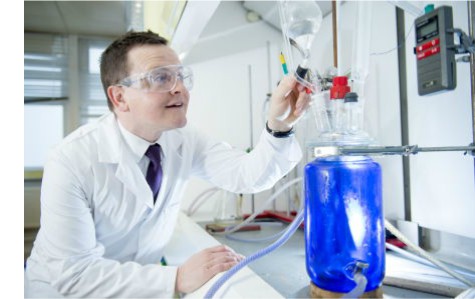Improving Polymers

Stick and Mix: Improving Polymers
Altering the surface qualities of plastics
Our world is built of plastic. Endlessly adaptable, plastic provides us with the shapes modern manufacturing requires. Professor Peter Scott and Dr Chris Kay’s work, investigating how polymer additives can modify the surface of plastics, has led to the creation of a spin-out company, Interface Polymers to explore the future of plastics. By developing new additives, they are addressing many of the issues with the most popular types of plastics in use today. From improving paint affinity to creating new types of recyclable packaging, Scott and Kay’s research is altering plastics for good.
The challenge
At present, many of the most popular plastics are hard to use for colouring or coating, increasing production costs. Resins, metals and ceramics all suffer from a lack of affinity with many polymers. Equally, many composite materials are difficult to separate for recycling. As a result the majority of mixed plastic waste is incinerated or dumped instead of being reused. The project aimed to create new additives that could mix into existing plastics. Yet, these had to avoid making industrial processes too complicated or commercially nonviable.
Our approach

The project team created Polarfins® which when added to plastics change how they interact with other materials. A number of applications have already been found for the technology:
-
Packaging
-
Sealing
-
Car manufacturing
-
Construction
-
Recycling
Our impact
Estimates have valued the global market for polyolefins at $150 billion, with further growth expected. Thanks to these additives many toxic chemicals used to make plastics will become redundant. Unsatisfactory processes such as chemical etching and plasma treatments could be replaced completely. Equally, these new substances will reduce energy use in plastic production. In addition, no large-scale investment would be necessary to integrate polarfins into polyolefins. Professor Scott and Dr Kay’s work has the potential to reduce waste, costs and pollution for everyone.
See more of the research behind this breakthrough

What is research impact?
Discover why it matters

More impact stories
Explore other work from Chemistry at Warwick
